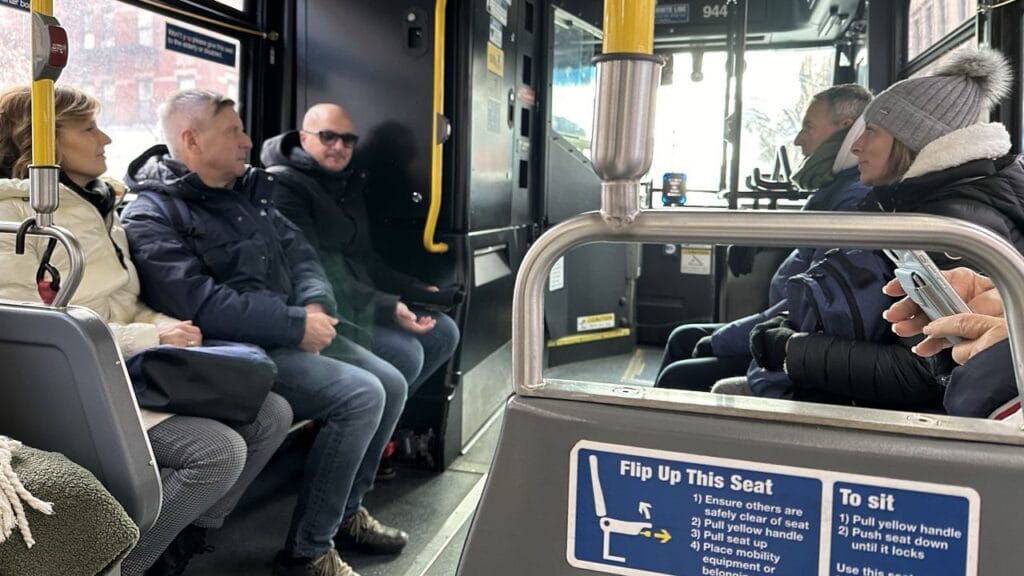New York riders react to first day of congestion pricing
Q New York City’s long-awaited congestion pricing plan took effect on Sunday, drawing varied responses from commuters on the M11 bus, which runs between Harlem and the West Village.

New York City’s long-awaited congestion pricing plan took effect on Sunday, drawing varied responses from commuters on the M11 bus, which runs between Harlem and the West Village.
Janet Palmer, a Hell’s Kitchen resident, is optimistic that the toll will ease traffic and speed up bus travel. “I think it is a good thing that they are doing the congestion pricing because the traffic is so hectic. The buses are slower and it’s so many people,” Palmer said. Riding with her great-granddaughter Penelope, Palmer noticed a smoother journey as they headed home from church. “I’m excited to see how it’s going to work,” she added.

The Metropolitan Transportation Authority (MTA) hopes to generate about $1 billion annually from the tolls to enhance the city’s transit system, including buying hundreds of new buses, adding express and electric buses, and developing charging infrastructure. The MTA envisions a 100% zero-emission fleet within 15 years.
However, some commuters remain skeptical about the impact. Hillary Baldwin, a resident of the Upper East Side, isn’t convinced. “I don’t think it’s going to change anything. No matter what you do to anything in New York City, something else happens as a result of it,” she said.
For Jennifer McGonigal of Harlem, the rising cost of living is a concern. “With the cost of living going up, the cost of buses going up, we’re not making enough money to cover ourselves,” McGonigal said. She also voiced safety concerns about the subway, saying, “Nowadays it’s too dangerous. Every other day you are hearing about someone getting slashed, somebody getting robbed, someone getting pushed onto the tracks.”
Despite these reservations, the MTA is looking to improve service, including expanding bus routes and increasing frequency. Governor Kathy Hochul announced in December that enhanced service on 24 routes will begin in the spring, with the goal of shortening commutes.
Some commuters, like the Kagles from Riverdale, adjusted their plans to avoid the congestion zone. “I think it was irrelevant on a Sunday. I don’t think they should have imposed full tax on Sunday when travel would be lighter,” Ken Kagle remarked. His wife, Ronnie, agreed: “Congestion pricing is a good idea but unfair on the weekends.”
As congestion pricing continues, the city’s bus riders are watching closely to see if it delivers on its promises to improve transit efficiency.














